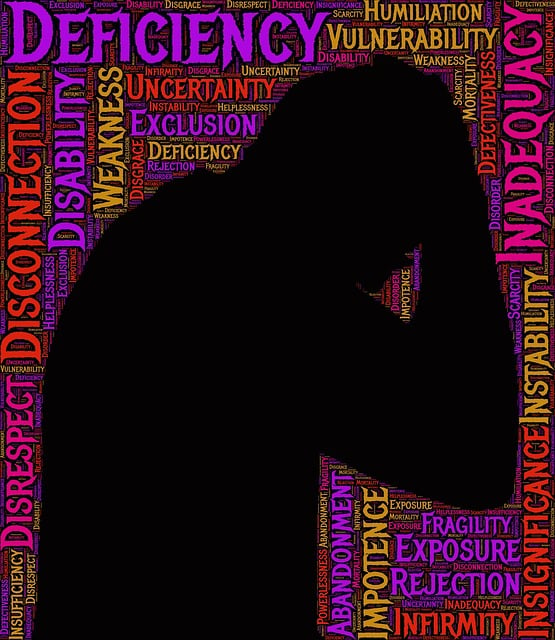TL;DR:
Therapy for adults with sexual dysfunction requires mental health professionals to navigate complex emotional landscapes, address stigma, and foster safe, non-judgmental environments. This involves integrating techniques like compassion cultivation, depression prevention, and social skills training, as well as regular updates to risk management plans based on research and ethical guidelines. Robust strategies include comprehensive case assessment, clear communication, crisis intervention guidance, and self-care routines for practitioners. Public awareness campaigns and stress management workshops also play crucial roles in empowering individuals to seek early help and enhancing overall well-being during treatment.
Mental health professionals face unique risks when addressing sensitive issues like adult sexual dysfunction therapy. This article guides practitioners through a comprehensive risk management planning process, tailored to this specialized field. We explore the distinct challenges, from patient disclosures to ethical dilemmas. By developing a robust plan, therapists can enhance safety, mitigate potential harm, and ensure effective treatment for individuals seeking help for sexual dysfunctions.
Sections:
1. Understanding Unique Risks in Adult Sexual Dysfunction Therapy
2. Developing a Comprehensive Risk Management Plan
3. Implementing Strategies for Safe and Effective Practice
- Understanding the Unique Risks in Adult Sexual Dysfunction Therapy
- Developing a Comprehensive Risk Management Plan
- Implementing Strategies for Safe and Effective Practice
Understanding the Unique Risks in Adult Sexual Dysfunction Therapy

Therapy for adults sexual dysfunction presents unique challenges due to the sensitive nature of the topic and the potential for triggering experiences. Mental health professionals must be adept at navigating complex emotional landscapes while fostering a safe, non-judgmental environment. This involves recognizing that patients may struggle with shame, guilt, or past traumas related to their condition. As such, therapists should incorporate compassion cultivation practices into their approach to build resilience and promote healing.
Public awareness campaigns development and stress management workshops organization can also play a crucial role in risk mitigation. By increasing understanding about sexual dysfunction, these initiatives reduce stigma and empower individuals to seek help earlier. Moreover, equipping patients with effective coping strategies through workshops helps them manage the stress associated with therapy, enhancing their overall well-being during the treatment process.
Developing a Comprehensive Risk Management Plan

Mental health professionals must develop a comprehensive risk management plan to mitigate potential risks and ensure patient safety, especially when addressing sensitive issues like adults’ sexual dysfunction. This plan should encompass various strategies tailored to individual therapy needs while considering broader societal factors. By integrating techniques from depression prevention, social skills training, and public awareness campaigns development, therapists can create a holistic approach that not only treats symptoms but also fosters a supportive environment.
A robust risk management strategy involves proactive measures to identify and address potential triggers or stressors that may impact a patient’s mental health. For instance, when treating sexual dysfunction, therapists should be prepared to navigate related emotional and psychological challenges, ensuring the patient feels comfortable discussing these intimate matters. Regularly reviewing and updating this plan is essential to stay aligned with evolving research, ethical guidelines, and cultural sensibilites, thereby enhancing the overall therapeutic experience.
Implementing Strategies for Safe and Effective Practice

Implementing strategies for safe and effective practice is paramount for mental health professionals to ensure optimal client outcomes, especially when addressing sensitive issues such as therapy for adults with sexual dysfunction. Beyond adhering to established ethical guidelines and legal requirements, practitioners should incorporate robust risk management techniques into their workflow. This includes meticulous case assessment, clear communication with clients about potential risks and benefits, and establishing contingency plans for managing crises.
Crisis intervention guidance plays a crucial role in mitigating risks associated with complex cases. Mental health professionals should be adept at recognizing warning signs of distress or decompensation in their clients and have readily accessible protocols for providing timely interventions. Moreover, fostering strong therapeutic alliances through open dialogue encourages clients to share pertinent information, allowing practitioners to anticipate and address emerging issues effectively. Complementing crisis intervention strategies, Self-Care Routine Development for Better Mental Health and Inner Strength Development are essential components of sustainable risk management. Professionals must prioritize their own well-being to maintain resilience, prevent burnout, and deliver high-quality care consistently.
Mental health professionals working with adults experiencing sexual dysfunction must navigate complex ethical and practical considerations. By understanding the unique risks inherent in this therapy, developing a comprehensive risk management plan, and implementing safe practices, therapists can ensure effective treatment while minimizing potential harm. This holistic approach to risk management is essential for maintaining high standards of care and fostering positive outcomes for clients navigating sensitive sexual health issues.









